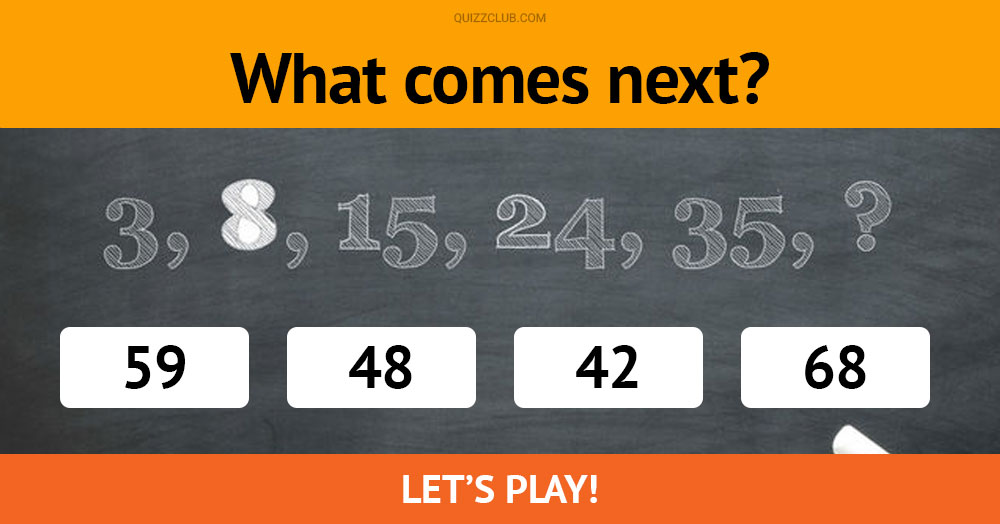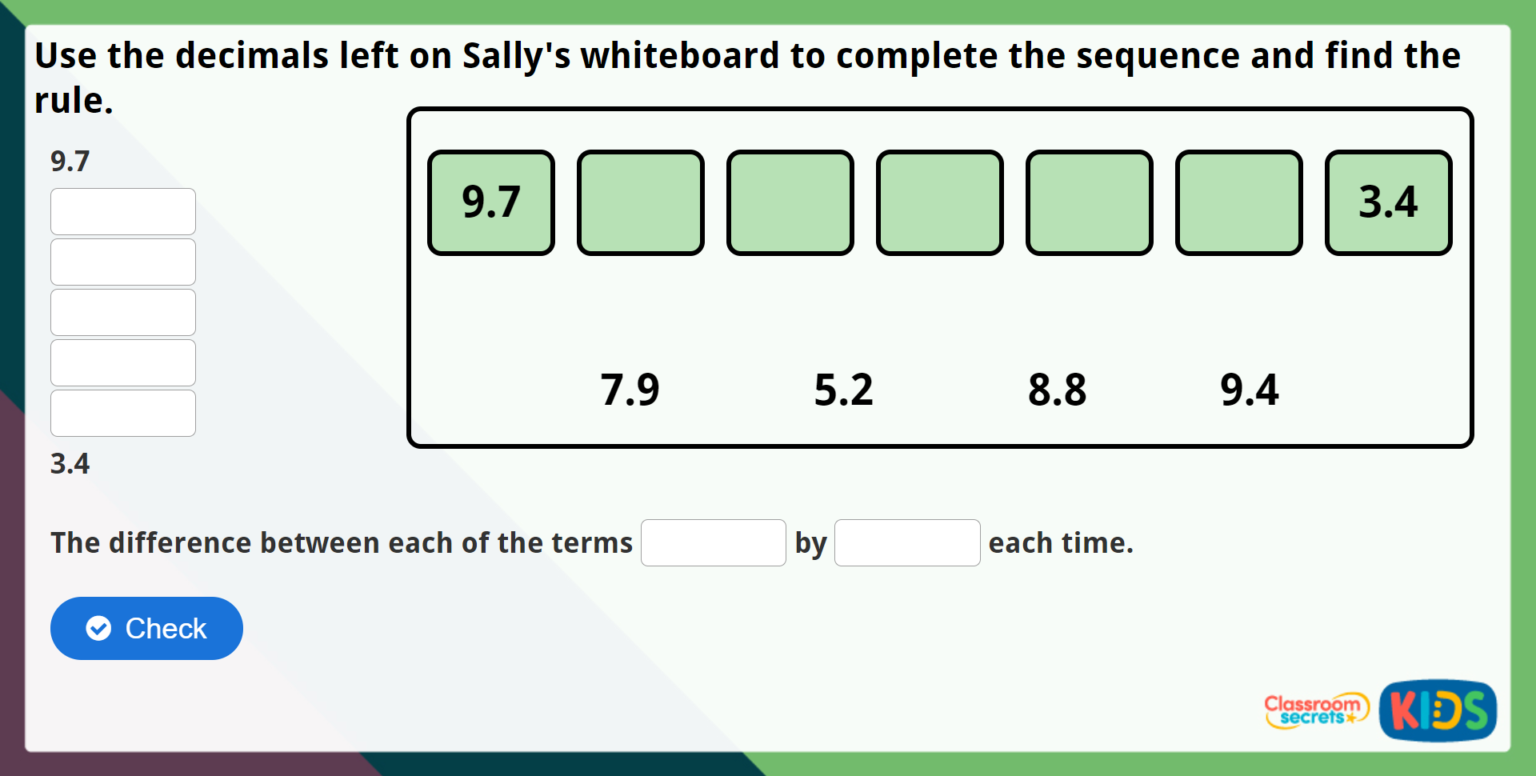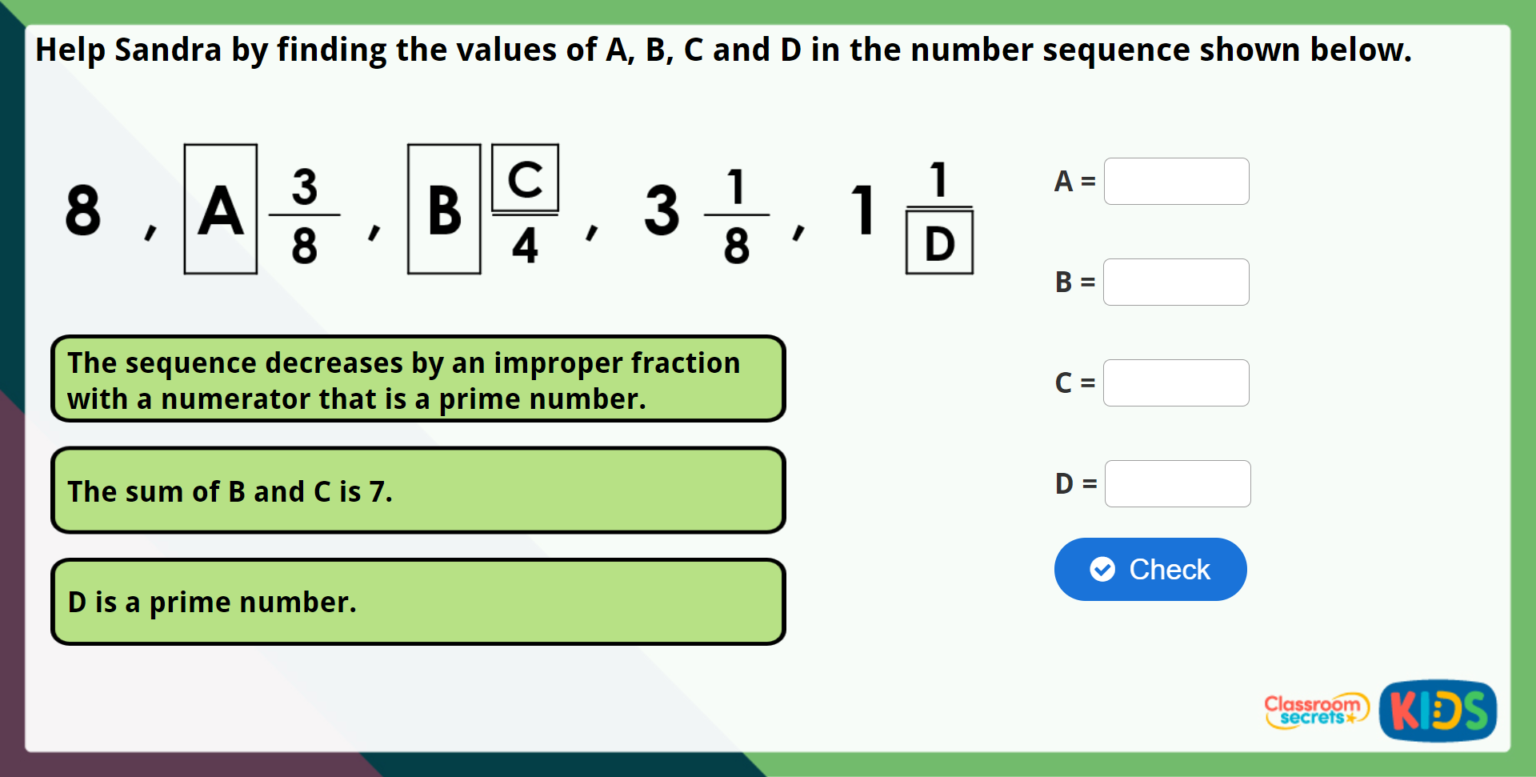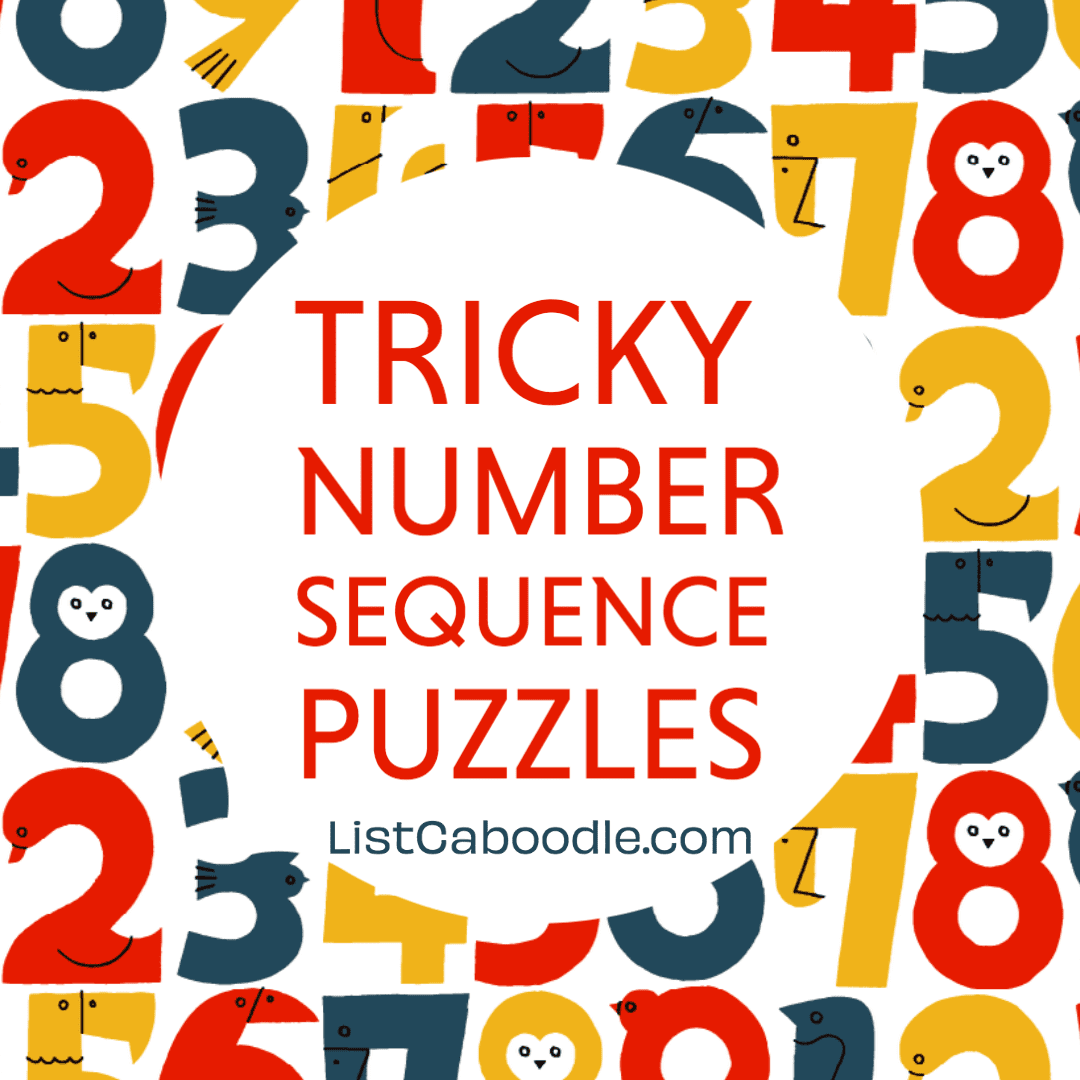
EXPLORE Numbers Challenge Series 2
Answer & Explanation. Solution: 97 Explanation: Difference between number sequence is below: 9,14,19,24,29 Now the difference between above sequence is 5. So next number is 68 + 29 =>97. category : SERIES. #10 - Pattern Series Picture Puzzle. Difficulty Popularity. Use the logical reasoning to find out the missing piece in the picture given.

Can You Solve These Insanely Hard... Trivia Quiz
Welcome to our channel! In this video, we will guide you through the process of solving a challenging math puzzle. Whether you're a puzzle enthusiast or look.

Year 5 Decimal Sequences Maths Challenge Classroom Secrets Kids
Challenge Level. A 2 by 3 rectangle contains 8 squares and a 3 by 4 rectangle contains 20 squares. What size rectangle (s) contain (s) exactly 100 squares?

Year 5 Number Sequences Maths Challenge Classroom Secrets Kids
More Challenging Problems: Numerical Sequences and Series. 1. Suppose a1 = 1 and for all n > 2, an = (an-1 + 5)/2. Show the sequence an converges and find the limit to which it converges. 2. Suppose a1 = 1, a2 = 1, and for all n > 2, a n = a n-1 + a n-2. Give numerical evidence that the sequence b n = a n /a n+1 converges.

EXPLORE Numbers Challenge Series 2
The goal of this game is to complete the number sequences. 60 math puzzles to solve in all! Number Sequence - Learning Connections Essential Skills Problem Solving - look for the best sequence of steps Numerical Thinking - play with number order Spatial Reasoning - visualize changes in the game.

Number Sequences Worksheets 99Worksheets
Number Sequences: Very Difficult Problems with Solutions. Problem 1. Find \displaystyle a_ {11} a11 if \displaystyle a_1=1 a1 = 1, \displaystyle a_2=1 a2 = 1 and \displaystyle a_ {n}+a_ {n-1}=2^ {n} an +an−1 = 2n. Problem 2. Let \displaystyle \ {a_n\} {an} be a number sequence, defined by the recurrence relation \displaystyle a_1=1 a1 = 1 and.

Kindergarten Math Number Sequence Worksheets and Activities
These KS2 tasks focus on finding patterns and investigating sequences in a systematic way.. In this investigation we are going to count the number of 1s, 2s, 3s etc in numbers. Can you predict what will happen? Break it Up! Age 5 to 11.. This challenge invites you to explore the difference in the number of small cubes I've used. Can you.

number patterns worksheets grade 7 number
Number Sequences: Difficult Problems with Solutions. Problem 1. The sequence \displaystyle \ {a_n\} {an} is defined by \displaystyle a_1=6+\sqrt {3} a1 = 6+ 3, \displaystyle a_2=15 a2 = 15 and the recurrence relation \displaystyle a_ {n+2}- (2+\sqrt {3})a_ {n+1}+2\sqrt {3} a_n=0 an+2− (2+ 3)an+1 +2 3an = 0. Determine the value of.

Mind Blowing Number sequence puzzles with answers
Several different critical thinking puzzles that relate to sequences, including find the sequence, pattern puzzles, and number sequences. Some of these are explicitly math related, such as finding the math pattern (these are excellent for test preparation), while others are great both for math teachers or any teachers, such as draw a sequence of pictures (great for younger kids in terms of.

Tricky Number Sequence Puzzles For Kids! ListCaboodle
Number Patterns. Recognize abstract patterns in number sequences. Finding the pattern in numbers is a skill that lays the foundation for data analysis abilities later. The numbers in these series range from simple addition or subtraction patterns (at the easy level) to rolling mixed computations (at the complex level).

Number Sequences, 4 levels of challenge with answers. Suitable for
Number Sequences (Difficult) Number sequences involve rules and finding them can be a bit of a challenge at times! This is our fourth and final section of 11-plus Maths quizzes on number sequences. If you haven't played the other three yet, it might be a good idea to go back and do them first. Some of these questions are particularly tricky, so.

11 Plus Number Sequences Worksheets With Answers Lottie Sheets
ANSWER: 6. In this sequence, two operations are performed on the next number. First, we divide by 2, and then we add 2. So, 68 divided by 2 = 34, and then add 2 for 36. With the number 8, we divide by 2 to get to a subtotal of 4 and then add 2 for the solution: 6. Pro Tip: Look at multiple operations happening to the same number.

Can You Solve These Insanely Hard Number Sequences? Playbuzz
Challenge your pattern recognition skills with Logical Number Sequences! This engaging video will put your logical thinking to the test as you analyze and de.

Number Maze 1 100 (printable) Learning Fun for SK, 1st, 2nd, 3rd G…
A Challenging Number Puzzle. Question: What are the three whole numbers whose sum and product are equal?. Can you figure out the next number in this sequence? SHOW ANSWER. Answer: 13112221 (Each of the numbers in the sequence is the description of the previous number. If you start with 1, the 2nd number is 11 (one 1), the third number is 21.

A Very Challenging Number Sequence. YouTube
Solution: To find the pattern, look closely at 24, 28 and 32. Each term in the number sequence is formed by adding 4 to the preceding number. So, the missing terms are 8 + 4 = 12 and 16 + 4 = 20. Check that the pattern is correct for the whole sequence from 8 to 32. Example:

mathematics number sequence quiz worksheet 50 arithmetic sequence
Knockdown. Age 11 to 14. Short Challenge Level. Weekly Problem 51 - 2016. Pegs numbered 1 to 50 are placed in a row. Alternate pegs are knocked down, and this process is repeated.